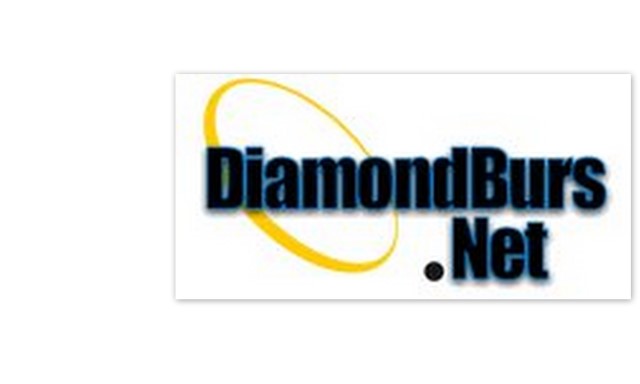One of the most common questions we receive from our customers regards the speed of your drilling:
“I’m drilling glass, how fast should I drill?” or “I read that I can drill at 450,000 revolutions per minute (RPM). My Dremel tool will only go to 35,000 RPM. Can I still drill glass?”
You can find all sorts of information and more importantly, misinformation on the web about drilling glass, tile and stone.
The right drilling speed for one application doesn’t always carry over to another. Circumstances, materials and tools all make a difference. Your family dentist uses diamond drill bits in his dental drill at extremely high speeds up to 450,000 RPM.
We recommend a much, much slower drill speed for sea glass, shells, tile, etc. If you’re drilling small holes, only about 1500-3000 RPM.
Diamond core bits for drilling wine bottles, glass bottles and glass block, even slower. Usually in the range of 600-1000 RPM. That’s usually the slowest setting on a drill press. Or, about one-quarter to one-half of the top speed of a hand-held power drill.
By using a slower drill speed and lots of coolant, you minimize the amount of heat created from friction. Your bits will last considerably longer than drilling at a high speed.
True; you will drill holes faster at high speeds, but only a little faster and you will wear out the bits 10 times as fast because of the extra heat.
So, what if your drill, rotary tool or air tool doesn’t have a speed that slow?
Then we adjust to the tool. Use an “up and down” motion while drilling. Drill for 4-5 seconds, then lift up for 4-5 seconds to let coolant flood the drill hole and allow the bit to cool. Then, drill for 4-5 seconds, and lift up. You’ll minimize the heat from friction, just like drilling at a slower speed.
Many of the bits that are returned to us as "defective" have black, brown, blue and yellow "burn" marks on them. This is actually the result of too much heat from drilling too fast. We honor the guarantee, but very few of the bits are actually defective. Most were accidentally misused. It's a new experience for most of our customers. Drilling glass is a little bit different than drilling into a wooden 2 by 4.
For more detailed information about drilling, download your copy of our FREE drilling guide by clicking here.
Good luck with your project! Let us know of any topics or questions you would like us to cover in future blog posts. And as always, we love project photos from our customers.
Tuesday, May 8, 2012
Friday, April 20, 2012
Can My Diamond Drill Bits Be Sharpened?
We’ve had several customers ask if their diamond drill bits can be sharpened. To find an answer, we asked two of our suppliers about re-coating worn out diamond drill bits. Unfortunately, they can’t be re-coated.
Both manufacturers gave the same answer: Making new diamond drill bits is an almost totally automated process. Computer controlled machinery shapes the stainless steel. Then, the stainless steel blanks are electroplated with the diamond coating.
Scraping the remaining diamond coating off of a used diamond drill bit, so that it’s clean enough to be re-coated, is a manual process. Additionally, it is labor intensive and costly.
In other words, it’s cheaper to make a new blank than it is to clean a used one.
Now the good news! Even if your diamond drill bits can’t be re-coated, they can be cleaned.
Many times the diamond bits are still on the drill bit. Not worn down, just covered up. Drilling glass and tile creates a very fine glass dust that coats and “glazes over” the diamonds on the drill bit. Using a cleaning stone or the bristle ends of a small wire brush can remove the glazing and re-expose the diamond particles. Not sharpening, but uncovering the diamond coating for many more uses.
You should clean your diamond drill bits after every third hole, or more often as needed.
This is a good idea for both glass drill bits and diamond core bits.
After the bits are worn out, the stainless steel is recyclable if your community has a metal and plastics recycling program.
Clean them - You’ll be glad you did.
Both manufacturers gave the same answer: Making new diamond drill bits is an almost totally automated process. Computer controlled machinery shapes the stainless steel. Then, the stainless steel blanks are electroplated with the diamond coating.
Scraping the remaining diamond coating off of a used diamond drill bit, so that it’s clean enough to be re-coated, is a manual process. Additionally, it is labor intensive and costly.
In other words, it’s cheaper to make a new blank than it is to clean a used one.
Now the good news! Even if your diamond drill bits can’t be re-coated, they can be cleaned.
Many times the diamond bits are still on the drill bit. Not worn down, just covered up. Drilling glass and tile creates a very fine glass dust that coats and “glazes over” the diamonds on the drill bit. Using a cleaning stone or the bristle ends of a small wire brush can remove the glazing and re-expose the diamond particles. Not sharpening, but uncovering the diamond coating for many more uses.
You should clean your diamond drill bits after every third hole, or more often as needed.
This is a good idea for both glass drill bits and diamond core bits.
After the bits are worn out, the stainless steel is recyclable if your community has a metal and plastics recycling program.
Clean them - You’ll be glad you did.
Subscribe to:
Comments (Atom)
